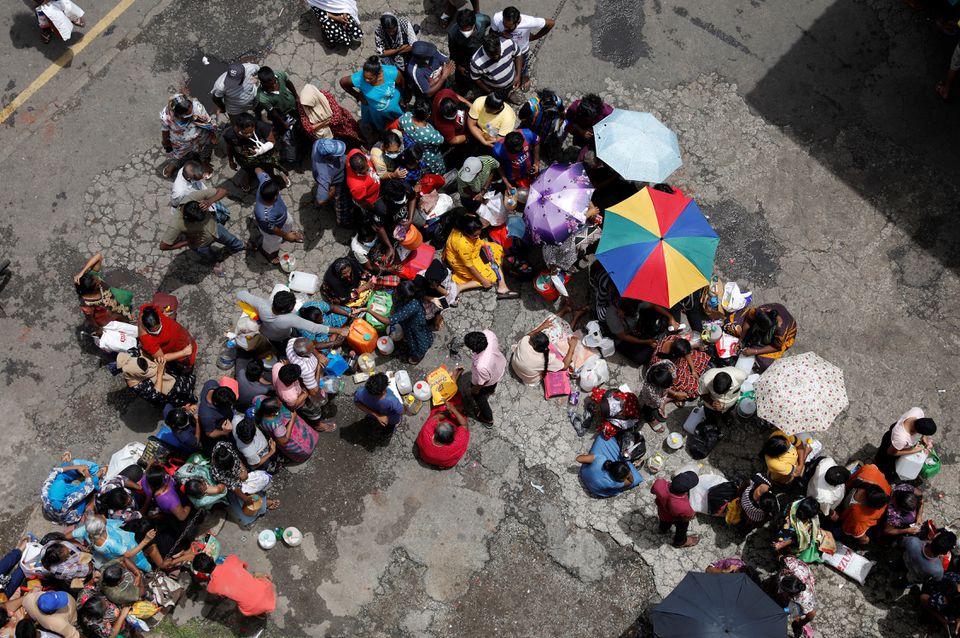
Sri Lanka’s central bank has secured foreign exchange to pay for fuel and cooking gas imports, which would help alleviate catastrophic shortages, its governor said on Thursday, but police used tear gas and water canon to push student demonstrators back.
As the island nation fights its most devastating economic crisis since independence in 1948, majority of Sri Lanka’s petrol pumps have run dry. Hundreds of people queued in queues clutching plastic jerry cans at several gas stations in Colombo’s economic city, as troops in military uniform and armed with assault weapons patrolled the streets. There was very little traffic.
Because of the shortage of transportation, most residents indicated they were staying at home.
Hundreds of students marched through Colombo’s downtown Fort district, waving black flags and screaming anti-government slogans. According to a Reuters witness, police used tear gas and water cannon repeatedly to push them back.
P. Nandalal Weerasinghe, Governor of the Central Bank, informed a news conference that enough money had been released to pay for fuel and cooking gas shipments, using a combination of $130 million from the World Bank and remittances from Sri Lankans working abroad.
He was commenting after the central bank maintained interest rates constant at a policy meeting, citing a large 7 percentage point increase in April that was ‘working its way through the system,’ according to the bank.
Weerasinghe stated that the country has become more politically and economically stable, and that he would continue in his position. In the absence of political stability, he informed reporters on May 11 that he would leave in two weeks since any efforts the bank made to solve the economic crisis would fail in the midst of the instability.
Ranil Wickremesinghe, an opposition MP, was named Prime Minister last week and has already appointed four cabinet members. He has yet to appoint a finance minister.
The central bank governor noted that inflation might increase to a stunning 40% in the coming months, but that it was primarily driven by supply-side pressures and that bank and government actions were already reigning in demand-side inflation.
In April, inflation reached 29.8%, with food prices up 46.6 percent year on year.
The COVID-19 outbreak, which is wreaking havoc on the tourism-dependent economy, has been compounded by rising oil prices and populist tax cuts by President Gotabaya Rajapaksa and his brother, Mahinda, who resigned as prime minister last week.
Other issues include substantially subsidised domestic fuel prices and a restriction on chemical fertiliser imports, which destroyed the farm sector.

Post Your Comments